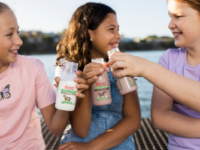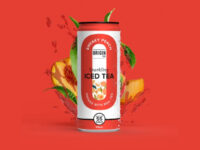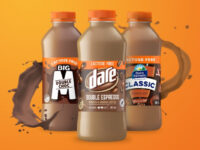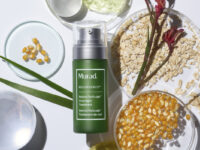 Product failures are inevitable. Steve Jobs had a refreshingly candid philosophy on the issue: Fail big, fail fast and fail often.
Product failures are inevitable. Steve Jobs had a refreshingly candid philosophy on the issue: Fail big, fail fast and fail often.
Indeed, some iconic global brands are serial offenders, or perpetrators, depending upon your frame-of-mind. No one, no entity, product or service is immune.
The lessons learnt are invaluable, and accessible to all. Sadly, too few are aware of the circumstances, the causes and the often very expensive consequences.
Coca-Cola stands proud and conspicuous among the great brands, companies and marketing entities around the world. But its recent introduction of Coke Life, with stevia as a natural sweetener, has been, reportedly, less than stellar.
Sales in the first five weeks of trading throughout Australia achieved an estimated seven million litres. That pales against a similarly inspired new product development, Coca-Cola Vanilla, which reportedly registered sales of 14 million litres in the same initial period. Coke Zero was also a success story, with a reported comparative 30 million litres in sales.
A corporate executive stated recently that Coke Life may achieve a one to two per cent market share of the Australian cola sector. The statement has the hallmark of a pre-emptive death notice. What went wrong?
The global sales of soft drinks, cola in particular (which represents more than 80 per cent of revenue in the sector throughout Australia) are declining. Indeed, 2015 will be a benchmark year as the sales of bottled water exceed those of bottled soft drinks.
Those in the key market segment (30-45 years of age) are increasingly sensitive to weight-gain and obesity. Artificial sweeteners are not appealing and recent academic research has concluded that consumption of artificial sweeteners over an extended period of time can increase its consumers’ girth.
Standard Coca-Cola has a long history of appealing to the younger, active youth segment. They can readilyburn-off the reported 12 teaspoons of sugar in each can of Coca-Cola. For the more sedate consumers, that will require a 40-minute run. Calories are like that! Thus, the potential lure of stevia, the new sweetener, is only a marginal factor in marketplace appeal.
Another issue is the green labelling. Green is not a good merchandising colour for products that are consumed into the body. The late Dame Anita Roddick, founder of Body Shop, has a lot to answer for. Her use of green did introduce an acceptance of the colour for products that are typically applied to the body, not ingested.
Beware line extension
The success rates of line-extended products and services are declining. It is important to be true to the market positioning of the product and the target marketing of primary consumers.
Colgate-Palmolive’s entry into the microwave-heated snack market was somewhat less than a resounding success. It seems that was simply a bridge too far for consumers, who were happy to brush their teeth and clean their crockery with Colgate and Palmolive products, but not ingest them. Gulp!
Get it right
Good, relevant market research minimises risk and improves the prospect to attain the status of relevance. It does not ensure success.
Projective research, in which respondents are asked to project their actions, buying patterns and behavioural traits, is of questionable value and accuracy.
Steve Jobs declared that it was not wise to ask people what is was that they most wanted, given that which they were not able to presently get. He concluded that most people didn’t know, had not thought about such, and didn’t have the answer.
It was his contention that entrepreneurs should develop products, services and applications, then “tell ‘em” and “sell ‘em”.
Ask the right questions
The probability of product/service failure can be lessened if one asks the right questions of the right people. Arguably, the biggest marketing failure in Australia during the 20th Century was the product of extensive and intensive research.
Leyland, the British-based motor vehicle manufacturer, asked Australians what they least liked about their present motor vehicles.
The findings were resounding. Put simply, the boot was not big enough.
Leyland promptly designed a big boot, attached an inadequate vehicle to it, and launched the Leyland P76. Alas, the company lost hundreds of millions of dollars, and is no more.
Questions were not asked included whether car owners would compromise aesthetics, leg room, space and power to gain a larger boot. Clearly they would not, and did not.
Ironically, the few P76 sedans that remain in Australia command a hefty premium – good for some quirky individuals, but not for a corporation seeking volume sales.
Barry Urquhart of Marketing Focus is an internationally respected keynote conference speaker, business strategist and consumer behaviour analyst and can be contacted at barry@marketingfocus.net.au.











